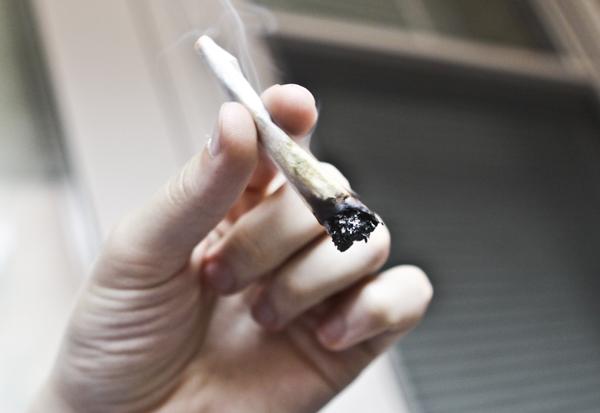Updated: Nov. 6, 2014 at 5:50 p.m.
Marijuana legalization in D.C. is moving forward, and student leaders said they would use that momentum to push GW to ease the punishments for getting caught with the drug.
Members of GW’s Students for Sensible Drug Policy chapter said they will ask officials to broaden the University’s amnesty policy to include other drugs besides alcohol, including marijuana. Their lobbying comes after D.C. voters overwhelmingly passed a ballot initiative Tuesday that would allow residents 21 and older to possess up to two ounces of marijuana for personal use.
Nick Watkins, the GW group’s president, said his organization argues that the nation is experiencing “a huge cultural shift” in the way people think about drug users.
“They’re not all criminals. They’re just these everyday people. They’re your fathers, your brothers, everyone around you,” he said.
The group’s effort will face steep challenges: University officials have repeatedly said they would not be able to allow marijuana use on campus, just as students didn’t see lighter sanctions after it was decriminalized in D.C. this summer.
Students for Sensible Drug Policy held events as part of a get-out-the-vote effort across campus leading up to Election Day, and began laying the foundations for urging administrators to make policies more forgiving.
If GW allows marijuana on campus, it could jeopardize its funding from the federal government. University spokeswoman Maralee Csellar said officials will “continue to subject students who possess or use marijuana to disciplinary sanctions.”
“Despite the results of Initiative 71 in the District of Columbia, GW policy does not permit students, faculty, staff or visitors to possess or use marijuana for any purpose. GW’s policy is consistent with and required by federal law,” Csellar said.
The ballot initiative, known as Initiative 71, will likely take months to implement, and Mayor-elect Muriel Bowser said in a press conference Wednesday that she would not allow legalization to roll out in D.C. until proper regulations are in place.
That means D.C. will need to determine the specifics of how to tax the drug. D.C. Council member David Grosso, who introduced legislation supporting legalization last fall, said in an interview that he estimates the law will not be implemented until next winter. But he said D.C. residents should expect to see retail shops selling marijuana, which he called the “reasonable” approach.
Grosso said he’s already been in contact with officials in Washington State and Colorado, which legalized marijuana in 2012, to begin working out how to tax and regulate marijuana in D.C.
“The responsible thing to do now is to put a tax and a framework around these regulations. What this bill does is make sure it is bought and sold in the right locations,” he said.
Council members held a hearing last week to start planning the roll out. Grosso said during the hearing that the revenue from marijuana sales could fund education programs about the potential negative health effects of the drug.
D.C., Oregon and Alaska all voted Tuesday to legalize the drug for recreational use.
The District’s government could also face setbacks from Congress, which has the power to review D.C. legislation. Del. Eleanor Holmes Norton, D.C.’s nonvoting representative in Congress, said in a release that she would fight against any congressional attempt to block legalization. Rep. Andy Harris, R-Md., has already said he would try to stop funding for a legalization bill.
“The people have spoken,” Norton said. “And D.C. residents can rest assured that when a mandate comes directly from the people, they haven’t seen a fight like the fight I’m preparing to make against Rep. Andy Harris and any other Member of Congress who attempts to undo our democratic process.”
Robert Capecchi, deputy director of state policy at the Marijuana Policy Project, said quickly working to regulate marijuana would show other states that the process is doable. Marijuana legalization will most likely be on the ballot in at least five states, like Massachusetts and California, in 2016.
“Colorado and Washington are succeeding. It’s not the end of the world, and regulation can ease many of the worries people have,” he said.
This post was updated to reflect the following correction and clarification:
The Hatchet incorrectly attributed a quote about a change in the way Americans think about drug users to Greg Gaffney-Bills, the legislative affairs director for GW Students for Sensible Drug Policy. Nick Watkins, the group’s president, had provided that quote. We regret this error. The post was also clarified to reflect that the organization is asking GW expand its amnesty policy to include not just marijuana but other drugs.







